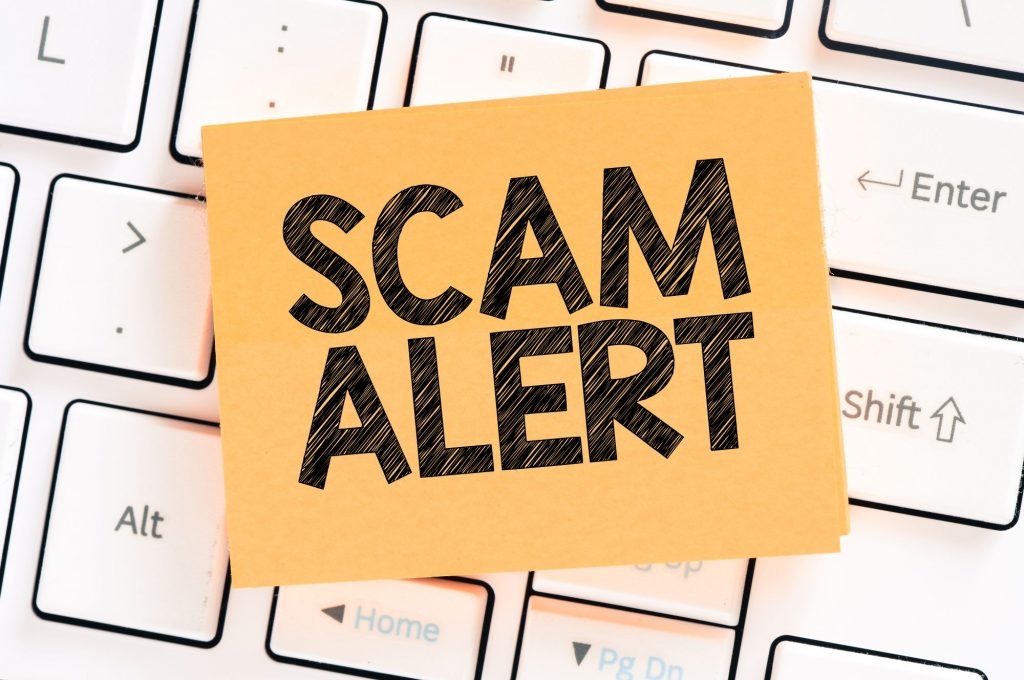Seniors, Watch Out! Top 5 Scams That May Target YOU IN 2023

In an ideal world, you could get a call from someone and trust that it was genuine. Sadly, we don’t live in an ideal world. Fraudsters will pose as just about anyone to try and scam people out of their money, bank account numbers, or other personal information. Unfortunately, studies show that older adults may be even more vulnerable to fraud. However, there are ways you can protect yourself from scammers! After all, knowledge is power. Here are the top FIVE scams targeting older adults.
1. Sweepstakes and lottery scams

We’ve all heard of Publisher’s Clearing House, right? Maybe you’ve signed up for the sweepstakes in the past. While it would be nice to receive a call stating that you won a million dollars or more, it could also be a nightmare—if the caller is actually a scam artist. Here are a few signs you may be dealing with a fraudster:
- They don’t actually address you by name on the call.
- They tell you to go to your local Walgreens, Walmart, or other store to pick up a gift card.
- They ask you to send money via Venmo, PayPal, wire, or cashier’s check.
- They advise you not to tell anyone that you’ve won.
2. Robocalls

Have you ever gotten a strange call from an unknown number? Maybe you answered the phone, only to be hit with an earful of silence or static. Or maybe a voice asked if you could hear them and then hung up when you responded. Unfortunately, this means you may have been a victim of the dreaded robocall scam. Scammers may be recording your voice in order to authorize unwanted charges or payments. Some signs you might be on the receiving end of a robocall are:
- They inform you that your car warranty has expired.
- They claim to be technical support.
- They ask you to take a survey that turns out to be fake.
- They claim to be from the IRS, Social Security Administration, or other government agency.
Note: Always remember to report suspicious phone calls, texts, and emails to ReportFraud.ftc.gov.
3. Phishing scams

We all receive dozens—if not hundreds—of emails every day. Sometimes, the emails might appear to be from a trustworthy institution, like a bank or a credit card company. Instead, it’s a trap—a digital Trojan horse. Once your personal information has made its way into scammers’ hands, then they can use it to authorize unwanted charges and more. However, you can actually recognize phishing scams! Here are a few signs the email or text you received isn’t genuine:
- They want you to click a link to resolve the issue.
- They ask you to confirm your personal or financial information.
- They claim they’ve noticed suspicious activity on your account.
- They ask you to update your credit card information.
4. Government imposter scams

Sadly, many fraudsters may impersonate government officials, as well. They may inform you that you haven’t paid your taxes or threaten to discontinue your Medicare benefits. And while this type of call can be scary, don’t let it rattle you. Instead, take a deep breath and look for these signs that the call is not genuine:
- They may call from a Washington D.C. zip code to make the call look more “official.”
- They make try and get you to share personal information: bank account number, Social Security Number, etc.
- They may ask you to wire money, send cash, or get a prepaid debit card.
5. Family scams

Many scammers will strike right at the heart—your family. A common scam is known as the “grandparent scam”, wherein the fraudster impersonates your grandchild and proceeds to wheedle information out of you. Alternatively, they may pretend to be an authority figure or someone else connected to their grandchild and call you on their behalf. Whatever the case, a few signs that you may be a victim of the dreaded grandparent scam are:
- They ask you not to tell anyone about the call or their request.
- They ask you to pay a jail bond, overdue car payment, etc.
- They ask you to transfer a large sum of money to their account.
Other Scams to Watch Out For

- Cryptocurrency scams
- Romance scams
- Online purchase scams
- Tech support scams
- Gift card scams
- Fake prescriptions scams
How can I protect myself against fraud?

In order to protect yourself against fraud, be vigilant. Keep track of your bank records and review your monthly statements closely. If you get a call from an unknown number, be on guard. Maybe the person calling is exactly who they say they are, but don’t ever blindly trust anyone—even if they claim to be a loved one. If you’ve been a victim of fraud, don’t fret. Instead, take a deep breath and make sure you call the police, your bank, or the Federal Trade Commission at 877-FTC-HELP (877-382-4357). Always stay up to date with the latest scams targeting older adults, so you can protect yourself against them. After all—knowledge is power.
Popular Articles About Boomer Blog
Originally published August 18, 2023








